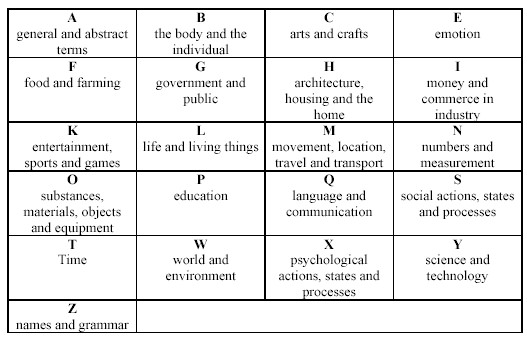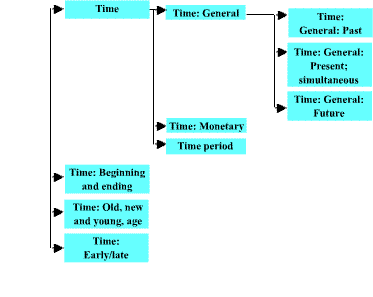I'm trying to create an educational system, and I would like to have more taxonomies than a simple part of speech. For example, I would like to be able to categorize words into:
- Tree => object
- Kindness => attitude
- Keyboard => computer part
- Car => transportation, object
A better example can be found at this English word groups page.
Do we have such classification in any corpus of English language? Is it related to linguistics at all, to categorize words by other taxonomies too.

